Overview & Vision
The University of Wisconsin Pediatric Residency Program’s focus on child global health and advocacy led to the launch of the Global Health Track in 2010-2011. What began as a resident-driven initiative blossomed into a longitudinal curriculum that spans all three years of residency. Its multidisciplinary nature provides residents with opportunities and relationships across the institution, the U.S., and abroad.
The Global Health Track for pediatric residents is designed to foster personal growth while teaching topics and providing tools that will serve them in their careers. Residents have the opportunity to engage in local global experiences in addition to international and domestic rotations in a variety of locations that emphasize ethical and sustainable partnerships.
An overview of training opportunities for Pediatric Residents in the Global Health Track can be viewed in our UW Pediatric Global Training Passport.
Components of the Global Health Track
Fundamentals of Global Health
A critical portion of the track is an annual two-week course, typically occurring in the fall. During this protected time, track residents are provided with a comprehensive overview of key issues in global child health, both locally and abroad. The two-week course involves small and large group discussions, case-based learning, simulations, procedural training, and didactics by global health faculty and visitors. The first week of Fundamentals is multidisciplinary, including the Departments of Pediatrics, Obstetrics and Gynecology, Family Medicine, Internal Medicine, and Emergency Medicine, which provides a broad range of perspectives and experiences and connects residents to others in the field of global health. Our second week focuses on collaboration between the Pediatric and Family Medicine residents to discuss topics, participate in simulations, and engage in the community on issues that affect pediatric patients. Course materials (and recorded presentations) are all on UW’s Canvas platform, and a brief summary of the course curriculum is available here.
Local Global Partnerships
During the second week of Fundamentals, pediatric residents often participate in local global partnerships that provide opportunities for local advocacy. Recent projects have focused on collaboration with Centro Hispano, a non-profit that provides services to Latino community members in Dane County. Residents have assisted with the curriculum development for training of community health workers (promotoras) who provide perinatal and infant education to new mothers. Track leaders partner closely with advocacy educators and experts to effectively engage track residents in local opportunities.
Strong Mentorship
Residents enrolled in the track are assigned global health mentors who help guide them throughout the course of their residency training and connect them with the resources available across UW–Madison to help them meet their personal goals. Mentors are also helpful in choosing a global health rotation.
Evening Sessions
Global Health Track residents meet one night a month to discuss a global health topic. This is also the forum for mid-year and graduation celebrations as well as an annual book club, with the book chosen by track residents.
Participation in a Global Health Elective
Track residents are encouraged, but not required, to participate in a global health elective during their residency training. International opportunities are available through University of Wisconsin partnerships in Uganda (ATLAS International) and other regions (dependent on current faculty involvement). Local global opportunities are available through the Center for Special Children in LaFarge, Wisconsin, (offering a unique experience working with Plain communities) and Indian Health Services. Residents may participate in electives in other locations as well.
The Big Picture
Our residency offers the opportunity to connect with a large, active, and internationally renowned graduate and undergraduate campus network. The University of Wisconsin-Madison Global Health Institute spans the campus and brings together faculty and students from across all disciplines to address health care, food security and sustainable agriculture, water and sanitation, environmental sustainability, and “one health” perspectives that integrate the health of humans, animals, and the environment. Through these networks, residents can work with and learn from professionals from an array of disciplines across campus.
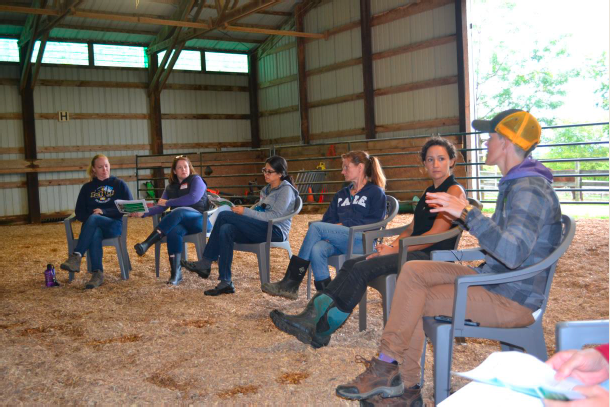
Hear From Our Residents
View a current roster of our Global Health Track residents and review the bios of this diverse and remarkable group. To see all of the prior UW Pediatric Global Health Track graduates (and briefly review some of their scholarly and global health elective experiences during residency), click here.
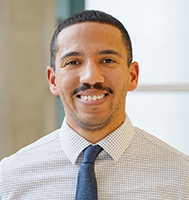 DeMarco Bowen, MD, MPH DeMarco Bowen, MD, MPH
Dr. DeMarco Bowen is an assistant professor in the Divisions of Hospital Medicine and Complex Care and Global Pediatrics. His clinical work focuses on improving care for hospitalized children in resource-limited settings, addressing disparities in pain management, and strengthening communication with diverse patient populations. |
|
Dr. Nicole St Clair joined the Department of Pediatrics hospital medicine and global health education teams in 2017, and assumed the role of director of the Global Child Health Training Program in 2018. Her primary global health areas of interest are to equip U.S.-based medical trainees to provide clinical care in areas with resource limitations, develop sustainable global academic partnerships, and utilize educational and clinical services to address health disparities. |
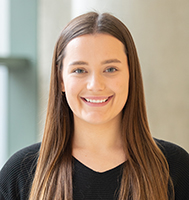 Kayla Campbell Kayla Campbell
Kayla Campbell is the coordinator for the Pediatric Global Health Track. She supports the Global Pediatrics team as an administrative assistant and coordinates the logistics for the global health track. Kayla supports the Division of Hospital Medicine and Complex Care as well. |
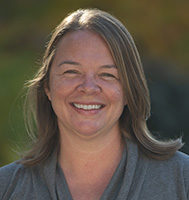 Sabrina Butteris, MD Sabrina Butteris, MD
Dr. Sabrina Butteris is professor in the Division of Hospital Medicine and Complex Care, chief of the Division of Global Pediatrics, and vice chair of clinical affairs for the Department of Pediatrics. Butteris’ professional interests include developing local and international partnerships that span health systems and K-12 school environments to address challenges affecting children’s health. |
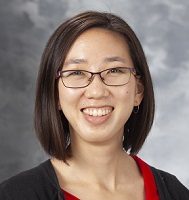 Melinda Chen, MD Melinda Chen, MD
Dr. Melinda Chen is assistant professor in the Divisions of Endocrinology and Diabetes and Global Pediatrics. Her main interests include clinical care, global health, and education. Chen’s global health work includes development of a pediatric endocrinology curriculum currently in use at the University of Rwanda in Kigali. In addition, she is on the PREP Editorial Board for Pediatric Endocrinology. |
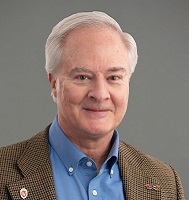
Dr. James Conway is a pediatric infectious disease specialist. His primary work within global health centers on vaccine-preventable diseases and community-based public health programs aimed at improving vaccine delivery. His region of concentration in his vaccine work has been East Africa. Dr. Conway is the Associate Director for Health Sciences for the University of Wisconsin Global Health Institute. |
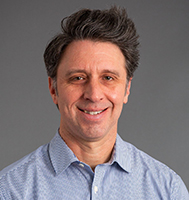 Anthony Garcia-Prats, MD, MSc, PhD Anthony Garcia-Prats, MD, MSc, PhD
Dr. Anthony Garcia-Prats is a general pediatrician who worked full time for 13 years in Lesotho, Tanzania and South Africa (2006-2019). His interests are pediatric HIV, the management of multidrug-resistant (MDR) tuberculosis (TB) in children and the pharmacokinetics and safety of anti-tuberculosis drugs in children. He is leading multiple observational studies and phase I and II trials of TB drugs and improved treatment and prevention strategies for TB and MDR-TB in children.
|
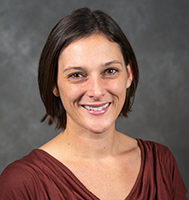 Ebba Hjertstedt, MD, MS Ebba Hjertstedt, MD, MS
Dr. Ebba Hjertstedt is assistant clinical professor. Her professional interests include developing and teaching skills in Point of Care Ultrasound (POCUS). She also passionate about global health, and specifically cross-cultural communication. Hjertstedt has a joint appointment in the Department of Medicine.
|
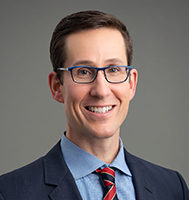
Dr. Ryan McAdams is a neonatologist who loves caring for newborn babies. He believes every child everywhere is valuable and deserves the best opportunities to thrive. Dr. McAdams is currently the Division Chief and Fellowship Director of Neonatology and at the University of Wisconsin School of Medicine and Public Health. He has worked in Mongolia, Cambodia, Zambia, and Uganda doing volunteer medical work and promoting educational development. He is interested in developing global collaborative relationships focused on education to improve newborn outcomes. |
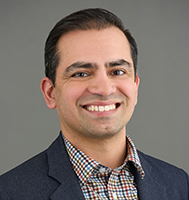 Neil Munjal, MD, MS Neil Munjal, MD, MS
Dr. Neil Munjal is a pediatric neurointensivist interested in acute and chronic brain injury care. He aims to preserve the brain health of ICU patients, including those who are admitted with a neurological diagnoses, such as traumatic brain injury, stroke, and status epilepticus, as well as those who acquire an unexpected brain injury during their ICU stay. In addition, Munjal provides high-quality long-term care for these patients through the Pediatric Brain Care Clinic. |
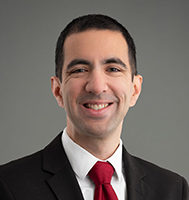 Jonathan Wong, DO Jonathan Wong, DO
Dr. Jonathan Wong is assistant professor in the both the Divisions of Gastroenterology, Hepatology, and Nutrition, and of Global Pediatrics. His interests include three broad categories: pediatric gastrointestinal endoscopy, quality improvement, and global health. Wong is currently a member of the Endoscopy & Procedures Committee within the North American Society for Pediatric Gastroenterology, Hepatology and Nutrition ( NASPGHAN). He also serves as the Director of Endoscopy at American Family Children’s Hospital. |
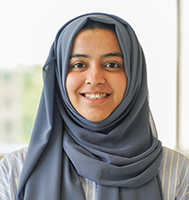 Tahreem Fatima, MBBS (PGY-1) Tahreem Fatima, MBBS (PGY-1)
Tahreem joins the Global Health Track after completing her medical education at Shaikh Khalifa Bin Zayed Al Nahyan Medical College in Lahore, Pakistan (2023), where she consistently sought out opportunities to address healthcare disparities through both clinical and community-based efforts. During medical school, she volunteered every year at annual orphan camps and vision screening initiatives for low income communities, and served as a |
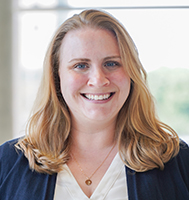 Kristin Kohlmann, MD (PGY-1) Kristin Kohlmann, MD (PGY-1)
Kristin’s global health efforts span the globe, from Stateside work with Americorps in Milwaukee and a refugee health organization in Salt Lake City, to research and education in Ghana, Malawi, and Sierra Leone, and an educational role in South Sudan. Her past roles have included managing field operations for nutrition research in Ghana and Malawi, coordinating sub-studies on maternal mental health in Sierra Leone, and investigating the long-term health effects of war-related forced captivity in South Sudan. Kristin has also served as a technical advisor to the Carter Center’s Guinea Worm Eradication Program in South Sudan. Her interdisciplinary background combines fieldwork, data analysis, and policy engagement, reflecting her commitment to improving health equity in crisis-affected populations. |
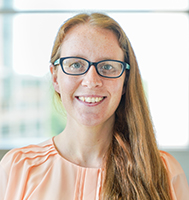 Izzy Loertscher, MD (PGY-1) Izzy Loertscher, MD (PGY-1)
Izzy has quite a bit of experience in global maternal and child health, with volunteer experiences across Uganda, Cambodia, and the United States. In Uganda, she helped provide antenatal care in a low-resource maternity clinic, |
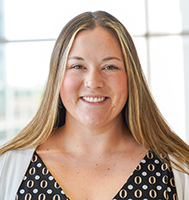 Hannah Waldman, MD (PGY-1) Hannah Waldman, MD (PGY-1)
Hannah has a clear commitment to the service for the underserved, having coordinated medical clinics at Madison Men’s Shelter, and mentored students in underserved areas. She has also worked as a research assistant, contributing to studies on healthcare outcomes for vulnerable populations, including those affected by drug use and radiation-induced heart disease. Hannah’s commitment to global health extends to her leadership in organizing and participating in volunteer-driven clinics and health initiatives. She has a commitment to serve diverse communities of children right here in Wisconsin, including care for indigenous and Plain communities. She hopes to learn how global health skills and knowledge can be applied to improve care for local communities. |
 Lauren Woyak, MD (PGY-1) Lauren Woyak, MD (PGY-1)
Lauren has extensive experience in community engagement and improving access to healthcare. Learning and working primarily in rural areas, Lauren understands and appreciates the impact a lack of subspecialty care and resources can have on patients, families, and communities. Lauren has worked on the front lines of these communities, working with Portage County, WI, to research the distribution and impacts of harm reduction kits in the community, as well as assessing stigma surrounding addiction. She has worked as a research assistant in studies evaluating risk-taking behaviors. Lauren has also volunteered with with organizations such as Feed My Starving Children and participated in events to support children’s health education. Lauren’s work continues to be shaped by her passion for service, education, and improving healthcare delivery in underserved communities. |
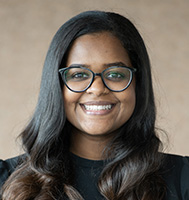 Rawan Elhassan, MBBS (PGY-2) Rawan Elhassan, MBBS (PGY-2)
After pioneering several medical education efforts during and after her medical school training at the University of Khartoum Faculty of Medicine in Sudan (where she graduated in 2020), Rawan took the big geographic leap to
|
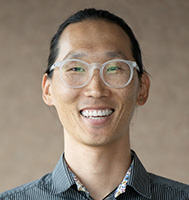 Jae Hyoung (Tim) Lee, MD (PGY-2) Jae Hyoung (Tim) Lee, MD (PGY-2)
Tim must have lived at least five lives prior to coming to UW—to get a full sense of everything that he experienced prior to making the leap to Madison, it’s best to bring a world map and take some time to chat with him as he describes his many life adventures. While his most recent stop was Baltimore, Maryland for research and his MPH at Hopkins, he completed his medical school training in Israel at Ben Gurion University (2015), military Medic work in South Korea (2016-2018), and lived in many different regions prior to Israel. He brings with him a wealth of multicultural and humanitarian experiences, including working in mobile clinics, researching infectious diseases to help derive ways to improve antibiotic stewardship on a large scale, and exploring opportunities for healthcare professionals to advocate for patients. |
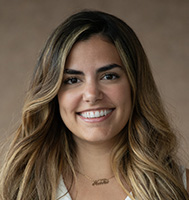 Marla Perez Negrin, MD (PGY-2) Marla Perez Negrin, MD (PGY-2)
Having grown up in Cuba where her mother served as a pediatrician, Marla witnessed the challenges of delivering healthcare in resource-limited settings. During her medical education at Washington University of Health |
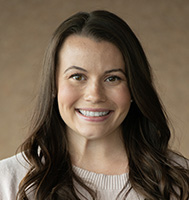 Paige Spata, MD (PGY-2) Paige Spata, MD (PGY-2)
From the Buckeye state to the cheese state, Paige is eager to learn more ways on how to care for underserved communities. As an undergraduate, Paige had the opportunity to study abroad in Botswana (2018) where she studied alongside local students analyzing the healthcare system and how to deliver care in a variety of settings. Her community engagement continued through medical school (University of Toledo, 2024) as she volunteered in |
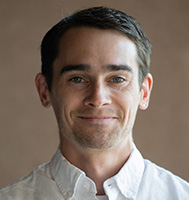 William Ford, MD (PGY-3) William Ford, MD (PGY-3)
Taking his first leap to the Midwest after training in Virginia, Maryland (2023), and Georgia, William brings with him a wealth of prior experiences, including serving in the Peace Corps in Mozambique, completing a Master of Public at Emory University (2013), and participating in multiple scholarly global health projects, including viral hepatitis surveillance in Saudi Arabia and tuberculosis screening in HIV-infected patients in Southeast Asia. William enrolled in the Global Health Track to improve his skills and knowledge relevant to providing culturally appropriate care to international populations, both within and outside the US. |
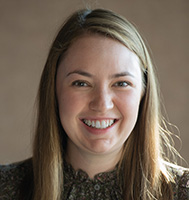 Allison Emmet, MD (PGY-3) Allison Emmet, MD (PGY-3)
Allison has decided to continue soaking up the seasons of the Midwest after attending the University of Notre Dame in Indiana (2018) and the University of Cincinnati College of Medicine (2023). Allison had the opportunity to |
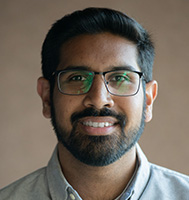 Jalal-Ud-Din Khan, MBBS (PGY-3) Jalal-Ud-Din Khan, MBBS (PGY-3)
Jalal-Ud-Din completed his education in Lahore, Pakistan at the Salamat International Campus for Advanced Studies (2012) and in Karachi, Pakistan at the Aga Khan University Medical College (2017). During medical school he |
Past Participants
Faculty Expertise, Research, and Resources
Below is a sampling of academic work by Pediatric Global Health Track faculty leaders on the role of global health in pediatric residency education. Residents have the opportunity to participate in scholarly projects with a global health focus through the track. Recent research and relevant publications can be found on the Division of Global Pediatrics webpage.
Curricula
Global Health in Pediatric Education: An Implementation Guide for Program Directors is a publication of the American Board of Pediatrics Global Health Task Force (2018). It is a comprehensive, practical resource for incorporating global health education into pediatric training programs. Dr. St Clair led the development of the guide in collaboration with Dr. Butteris and many colleagues across the international global health educator community.
 SUGAR (Simulation Use for Global Away Rotations) is a suite of free educational products used to prepare medical providers to work in resource-limited settings. It was co-created by Dr. Butteris and colleague Dr. Mike Pitt from the University of Minnesota and piloted by the Midwest Consortium of Global Child Health Educators. Facilitators have been trained at over 100 institutions across the world. SUGARPREP consists of the SUGAR Trio, a comprehensive set of curricular resources for use by global health educators. The Trio is comprised of:
SUGAR (Simulation Use for Global Away Rotations) is a suite of free educational products used to prepare medical providers to work in resource-limited settings. It was co-created by Dr. Butteris and colleague Dr. Mike Pitt from the University of Minnesota and piloted by the Midwest Consortium of Global Child Health Educators. Facilitators have been trained at over 100 institutions across the world. SUGARPREP consists of the SUGAR Trio, a comprehensive set of curricular resources for use by global health educators. The Trio is comprised of:
- SUGAR (Simulation Use for Global Away Rotations) Sim Cases: a simulation-based curriculum that focuses on common challenges, both practical and emotional, faced when working in resource-limited settings.
- PEARLS (Procedural Education for Adaptation to Resource-Limited Settings): a series of downloadable or streaming videos that demonstrate how to modify medical procedures using supplies commonly found in resource-limited settings.
- S-PACK (SUGAR’s Pre-Departure Activities Curricular Kit): a comprehensive pre-departure global health curriculum that is modular and modifiable.
Additional resources developed by the Midwest Consortium of Global Child Health Educators can be found at sugarprep.org.
Global School Health
Developed by a former UW Pediatrics Global Health Track graduate in collaboration with UW Global Pediatrics faculty, the American Academy of Pediatrics (AAP) Section on Global Health, the AAP Council on School Health, and national colleagues, the Global School Health Toolkit is an online, practical resource for pediatric providers from high-income countries with little or no prior school health expertise who are seeking to engage in school-based health initiatives in low- and middle-income countries. Informed by an extensive literature and needs assessment, this comprehensive toolkit is a remarkable resource for anyone engaging with school communities.
Applying for the Global Health Track
Following Match Day, all incoming residents will have the opportunity to apply for the Global Health Track. Selected residents will begin participating in the track during their intern year.
For questions about the Global Health Track, please email the Global Health Chief at chiefresidents@pediatrics.wisc.edu.
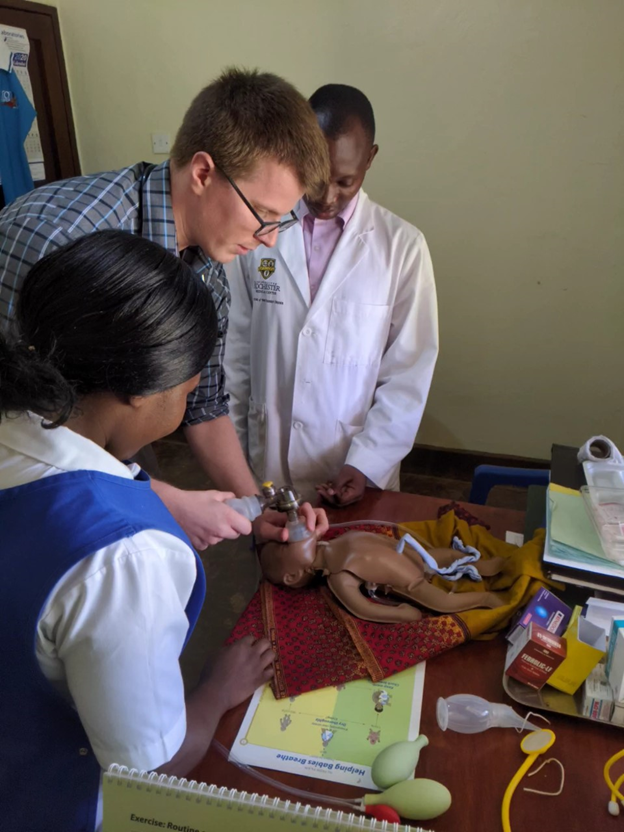
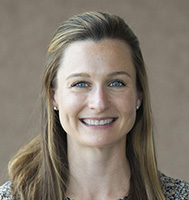
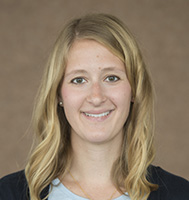
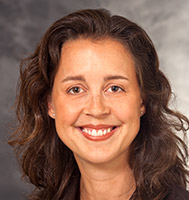 Nicole St Clair, MD, MS
Nicole St Clair, MD, MS